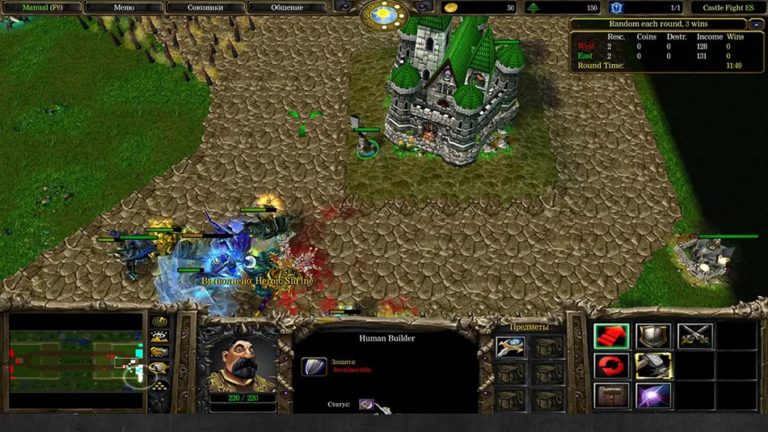

Pick up a knight, archer, bomb, or healing potion by pressing the trigger button on the HTC Vive controller. Defend your castle from the pirates by throwing out knights, archers, bombs, and healing potions. (Instructions can also be found on the main menu of the game) Project Advisors - Rob Stauffer, Ben Mears, Judith Crow, Luiz Kruel, Damian Campeanu Game Design & Programming - Gabriel Valdivia, Viviana MoraĪrt & Animation - Gabriel Valdivia, Joshua Aoki, Som Goswami To learn more about the development of Castle Defender VR, watch the videos on this page: This procedural workflow allowed them to easily use and modify the assets in Unity with maximum control and speed. The team of interns built everything inside Houdini, including the characters and animations, and then used Houdini Engine to bring the procedural assets into the Unity game engine. The game gets increasingly difficult as the waves of pirates get bigger and bigger!Ĭastle Defender VR was developed by several SideFX game interns to explore how Houdini can be used to create procedural assets for VR games. In Castle Defender VR the player must protect their castle from waves of attacking pirates by strategically throwing out knights, archers, bombs, and healing potions. The most likely times for you to receive infringement letters are either a few months after product launch as they see you are practicing, or else right after a celebratory press release that exposes how much money you are making.(Note: HTC Vive is required to play Castle Defender VR) (For this reason, sometimes even if you infringe, a patent troll will wait until a start-up has launched a product before they sue. In other words, the damages are somewhat related to your revenue. The damages you are risking are related to how much profit you are taking away from them. However then the bills will really start to mount.

You can wait until they sue and then try to drag out the court case while you continue selling. However if you lose the lawsuit, having the opinion letter in your files will show you did not knowingly violate a patent you thought was valid, and will help protect your from triple damages.

You are basically daring them to sue you. If you believe you infringe the written claims but you think their patent would not hold up to scrutiny in court (perhaps you found some prior art to show it was not novel) then you can ask your lawyer to document this conclusion in an opinion letter and just keep operating. Your counsel can draft this letter for you. If you believe they are actually wrong, just tell them “go pound sand”. So it is usually best to respond somehow: If you ignore their letter, they may start sending letters to your customers instead, which is embarrassing and hurts your reputation. It turned out that the newspaper he claimed to represent did not exist. We became suspicious and asked him to leave. We found him in the hallway asking our scientists questions about which chemicals they used. After a few questions, the reporter excused himself to go to the bathroom and did not return for a long time. We took him on a tour of our facility, pointing out many recent demos, then returned to the conference room for an interview. Once we were visited by a newspaper reporter doing a story on innovative companies. How about another example? At E Ink we conducted many press interviews. But we had also kept some information as trade secrets, which he was not able to see. Over the years we imagine he studied every word and diagram that was published in our patents, and he probably assumed he could copy whatever we did because he was based in China where patents are hard to enforce.

We were very lucky that our material was low-quality while he was an employee and only improved later, after he left. We discovered that they funded him to set up a research team to replicate E Ink’s work. Think it won’t happen? A few years after we started E Ink, a mainland Chinese employee was hired away to become faculty at a Chinese university. IP theft is unfortunately a real issue, and the more press attention your company receives, the more likely you are to be targeted.


 0 kommentar(er)
0 kommentar(er)
